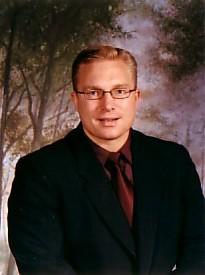After mentioning the emergence of self-made, individualistic spiritualities in our current context, Wells makes this very perceptive comment— "And what will prove even more momentous to the evangelical world than its engagement with other religions, I believe, will be whether it is able to distinguish what it has to offer from the emergence of these forms of spirituality. Therapeutic spiritualities which are non-religious begin to look quite like evangelical spirituality which is therapeutic and non-doctrinal." —Above All Earthly Pow'rs (p5)
From my perspective, despite the fact that it seems to be "cool" to be evangelical right now, much of evangelicalism is almost indistinguishable on a practical and philosophical level from these emerging spiritualities. When the "message" is pop psychology mixed with a few castrated Bible quotes, and the program emphasis is to please the visitors rather than God Himself it is small wonder that many attenders can feel every liberty to live by their own existential impulses. It is also small wonder that they can continue to live life apart from a comprehensive worldview when there is no such view regularly and accurately proclaimed from the pulpit (or bar stool, couch, reclining chair, group hug, etc.). If the philosophy proceeds from and terminates upon man, what really does distinguish it from these spiritualities? The misuse of Scripture and occaisional reference to Jesus can be found in the emerging spiritualities. At a confessional level there ought to be a glaring difference, but with doctrine so often being set aside even this distinguishing element is blurred and often obliterated.
Wednesday, July 26, 2006
Thursday, July 06, 2006
Postmodernism and Postmodernity
"As we try to understand our contemporary world, it is necessary, I believe, to distinguish between postmodernism and postmodernity. The former is the intellectual formulation of postmodern ideas on the high end of culture. It is their expression in architecture, in literary theory, philosophy, and so on. Postmodernity, by contrast, I am taking as the popular, social expression of the same assumptions but in ways that may be unselfconscious and often not intellectual at all, making this a diffuse, unshaped kind of expression. If the one is found in books and art, if it is debated on campuses and in the academy, the other is found in rock music, in the malls, on television, and in the workplace."
— David Wells in Above All Earthly Pow'rs (p64)
From my perspective this is a helpful and workable distinction. Even in academic circles, postmodernism as a philosophy seems passe. Few everyday individuals have a clue or care about the formulations of Lyotard and others. There are also many distinctions that can be made between the two (postmodernism and postmodernity). The main concern of the average citizen is how their own thinking and living patterns are intensely personal and real to them, but not to be imposed on others. Our concern as Christians in this age is how the Gospel comes to bear upon the individual in his own life, not how it may be used to fight against a formulation that may have been extrapolated and modified more or less until it comes to assume the shape of the individual's thought. Is it interesting to understand how things got to be the way they are today? Absolutely! But it is of much more value for us to understand the times themselves than what a philosopher may have said about the way he would like things to be. This is particularly true in dealing with people who think within the basic mental framework that most individuals live with today— that there is no absolute truth. (Maybe more on this one later.)
— David Wells in Above All Earthly Pow'rs (p64)
From my perspective this is a helpful and workable distinction. Even in academic circles, postmodernism as a philosophy seems passe. Few everyday individuals have a clue or care about the formulations of Lyotard and others. There are also many distinctions that can be made between the two (postmodernism and postmodernity). The main concern of the average citizen is how their own thinking and living patterns are intensely personal and real to them, but not to be imposed on others. Our concern as Christians in this age is how the Gospel comes to bear upon the individual in his own life, not how it may be used to fight against a formulation that may have been extrapolated and modified more or less until it comes to assume the shape of the individual's thought. Is it interesting to understand how things got to be the way they are today? Absolutely! But it is of much more value for us to understand the times themselves than what a philosopher may have said about the way he would like things to be. This is particularly true in dealing with people who think within the basic mental framework that most individuals live with today— that there is no absolute truth. (Maybe more on this one later.)
Tuesday, July 04, 2006
A Book Worth Reading...and Reading Again!
I am currently about half way through David Wells' Above All Earthly Pow'rs. It is an excellent, thought-provoking book. Over the next several days I intend to make a few quick entries about certain of Wells' points that have informed and challenged me.
This book is not just a skim read. It is worth your full attention and if you are like me will probably demand an immediate reread!
This book is not just a skim read. It is worth your full attention and if you are like me will probably demand an immediate reread!
Subscribe to:
Comments (Atom)
